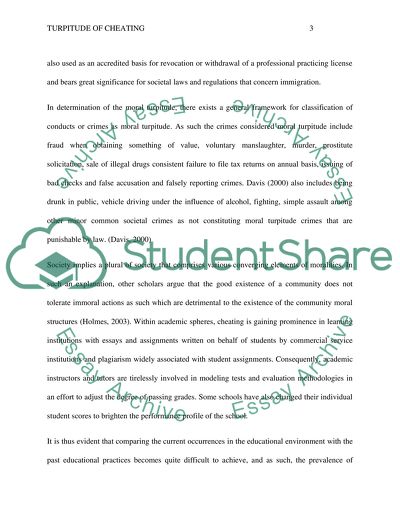Cite this document
(“Moral Turpitude of Cheating Essay Example | Topics and Well Written Essays - 1250 words”, n.d.)
Retrieved from https://studentshare.org/health-sciences-medicine/1451858-moral-turpitude-of-cheating
Retrieved from https://studentshare.org/health-sciences-medicine/1451858-moral-turpitude-of-cheating
(Moral Turpitude of Cheating Essay Example | Topics and Well Written Essays - 1250 Words)
https://studentshare.org/health-sciences-medicine/1451858-moral-turpitude-of-cheating.
https://studentshare.org/health-sciences-medicine/1451858-moral-turpitude-of-cheating.
“Moral Turpitude of Cheating Essay Example | Topics and Well Written Essays - 1250 Words”, n.d. https://studentshare.org/health-sciences-medicine/1451858-moral-turpitude-of-cheating.


